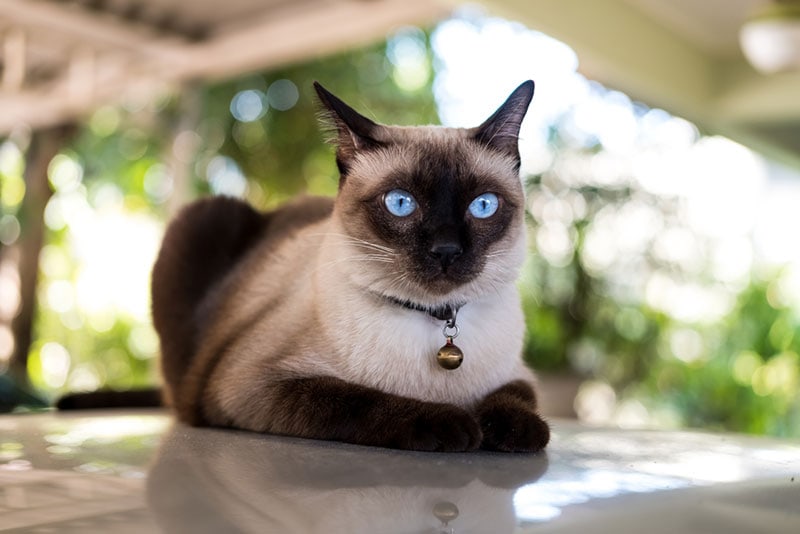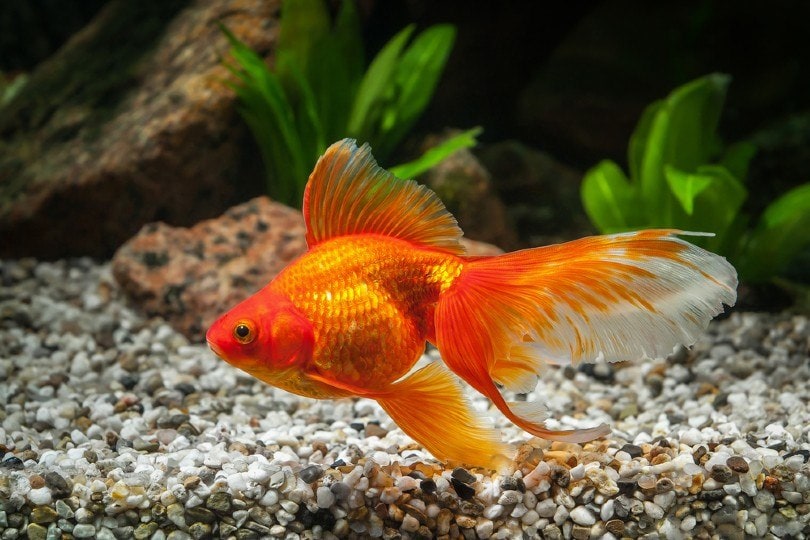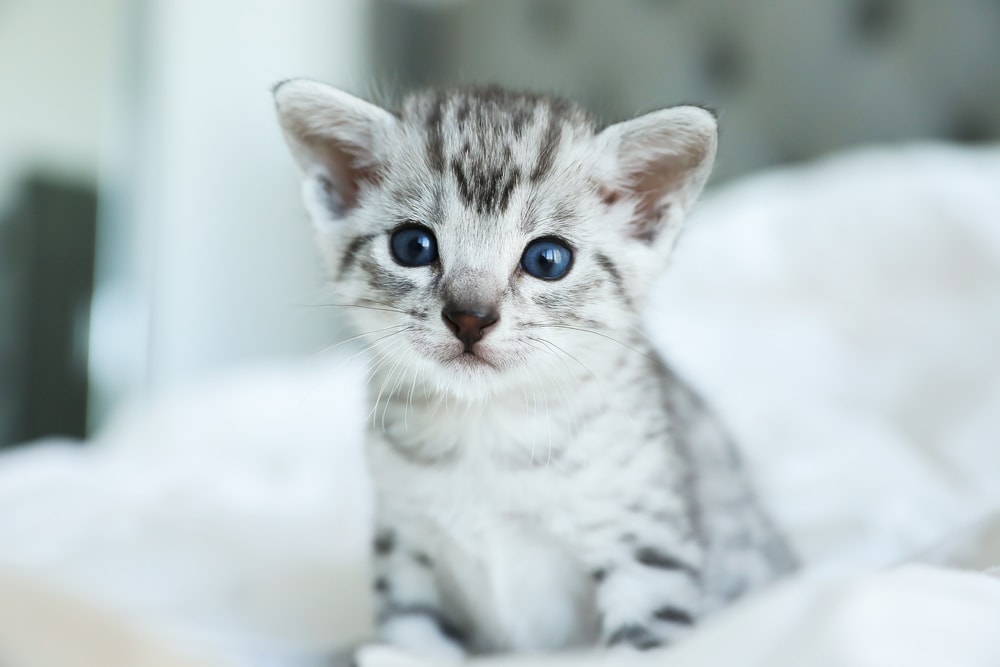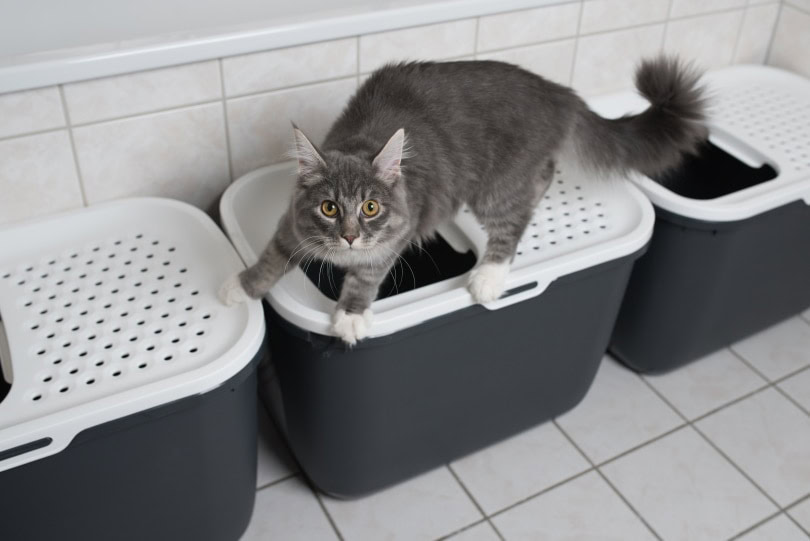VET APPROVED

The information is current and up-to-date in accordance with the latest veterinarian research.
Learn more »Click to Skip Ahead
Have you ever wondered if your cat would remember you if you had to leave home for a while? We form such powerful bonds with our cats, and it would be heartbreaking to find our cats have forgotten us when there’s been a separation.
The good news is that cats have short- and long-term memories that enable them to remember anything important. This includes you! It’s believed that cats can remember things for up to 10 years.
If you are interested in learning more about how the cat’s memory works and how well they actually remember things, read on!

A Cat’s Short-Term Memories
Short-term memory is also called working memory because it’s about remembering the most immediate events. Examples are when someone introduces themselves or gives you their phone number and how well you remember this a short time after.
Cats use short-term memory for daily problem-solving, enabling them to stay alert and remember something significant. This can help them survive. Researchers from the University of British Columbia conducted a study in 2007, in which cats were put through a few tests.1
The cats’ leg movements and how they avoided obstacles were monitored, and it was discovered that some cats have a short-term memory of up to 24 hours or even longer! This is usually for things that are important to them, particularly food. It enables feral cats to relocate to an area where they had a successful hunt earlier. Your cat will always remember where you put their food bowl and dinner time.
A 2005 study tested cats on how well they remembered hidden objects. They found that some cats were able to recognize an object up to 60 seconds after being hidden, but the accuracy typically declined in the first 30 seconds.2
Overall, cats are more likely to remember something they have interacted with rather than just something they have seen.
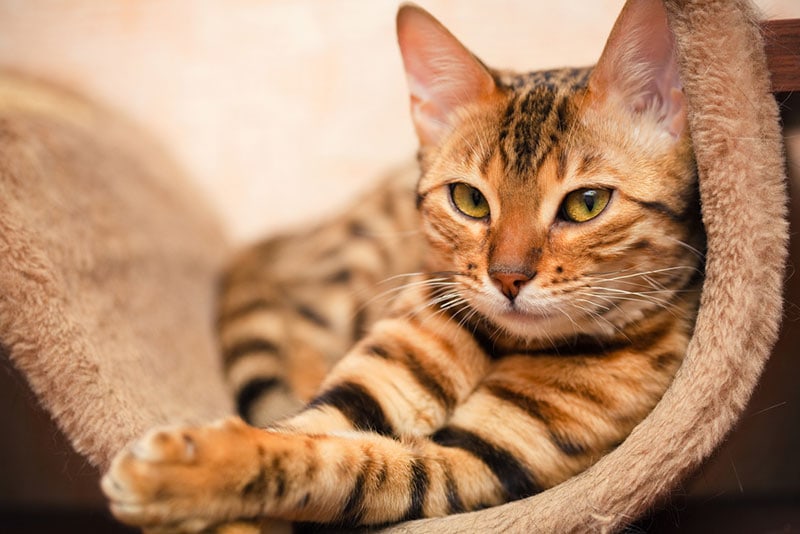
A Cat’s Long-Term Memories
A cat’s long-term memory is comprised of important information. While it isn’t at the forefront of their minds, cats remember things for as long as 10 years. They use their long-term memories to associate environments, sounds, animals, and people with negative and positive experiences. A cat will remember their owner easily because of being fed and petted and having other positive experiences.
Likewise, the cat will remember and avoid someone with whom they had a negative experience. Similarly, your cat might go into hiding when it starts pouring rain because they might associate the rain with thunder with a traumatic experience. This is also why your cat will remember you if you’ve been away for an extended period.
Cats will best remember events with strong emotional ties, but just like the rest of us, their memories fade to a certain degree over time.

Do Cats Carry Grudges?
A grudge comes from long-term memories, and while cats have a long-term memory, they don’t exactly hold grudges like we do. They are likelier to avoid situations they associate with a bad memory rather than punish the perpetrator.
The worse the association, the longer the cat will remember it. So, if you accidentally step on your cat’s paw, they might hide from you for a bit but will come out for treats and scratches and forget about it shortly afterward.
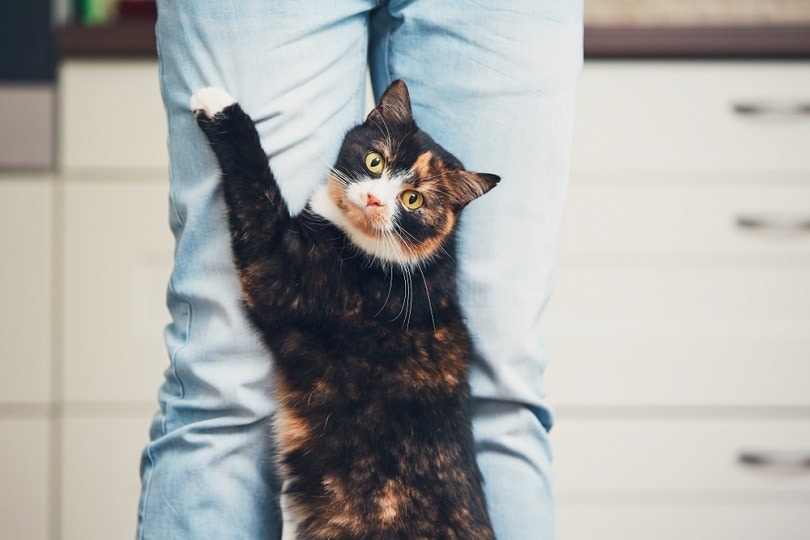
Do Cats Remember Other Animals?
Cats remember other pets like cats and dogs. They learn about the world around them through scent and can form strong bonds with other animals. How well they remember another cat depends on the length of time spent together and the strength of the relationship.
Cats have complex memories and relationships, but these associations, in combination with their strong sense of smell, allow them to remember other pets.

How Well Do Cats Remember Where They Live?
It depends on the cat. There have been several cases of cats traveling long distances to find their homes. A Persian cat named Howie traveled roughly 1,000 miles across the Australian outback over 12 months to get back home!
Cats have an excellent sense of direction, and their sense of smell helps a great deal.
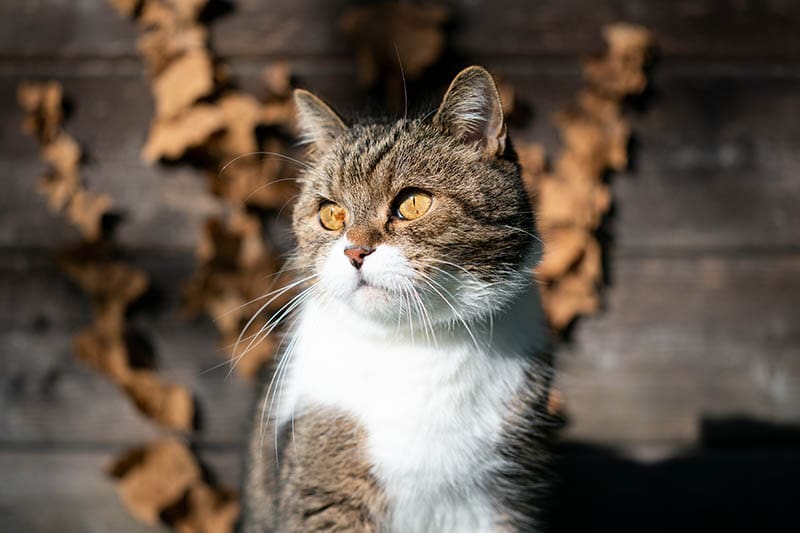
When Cats Start to Lose Their Memory
Unfortunately, just like humans, as cats age, their memories start to decline. They can also experience dementia, which is a cognitive dysfunction syndrome (CDS) primarily affecting cats 10 years of age or older.
The following are signs associated with dementia:
- Irritability
- Confusion
- Anxiety
- Restlessness
- Disinterest in playing
- Excessive licking
- Slow to learn new tasks
- Inability to follow familiar routes
- Lack of grooming
- Incontinence
- Loss of appetite
- Changes in sleep cycle (waking at night, sleeping during the day)
- Increased vocalization
A 2011 study found that CDS affects 1/3 of cats aged 11 to 14. The number of cats with signs of CDS increases to 50% when they are 15 years or older.
What Can You Do to Protect Your Cat’s Memory?
To help protect your cat’s memory, they will benefit from exercise, an excellent diet, and plenty of mental stimulation. You can try interactive puzzles and slow feeders, which will make your cat use their brains and curiosity to solve puzzles. Also, spend time playing with your cat as much as possible.
Supplements for cats can decrease the risk of losing their cognitive skills. The following vitamins and minerals help with cognition:
- Vitamins E and C
- Beta carotene
- Selenium
- Carnitine
- Omega-3 fatty acids
If you believe your cat has memory issues, consult your veterinarian. They can help you diagnose the problem and provide the appropriate treatment.


Final Thoughts
Overall, cats have good memories, particularly regarding food and anyone who treats them with love and feeds them. It’s not likely that your cat will remember someone they only met once, particularly if a great deal of time has passed since they met them.
How well a cat remembers anything depends on the individual, how much they experience strong emotions, and the level of the interaction. Rest assured that as long as you treat your cat with love and spend time playing with them (and feeding them), they will remember you for a lifetime.
Featured Image Credit: Voraorn Ratanakorn, Shutterstock
